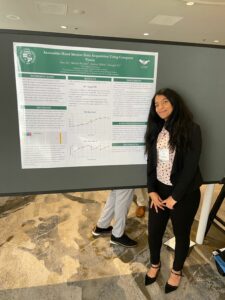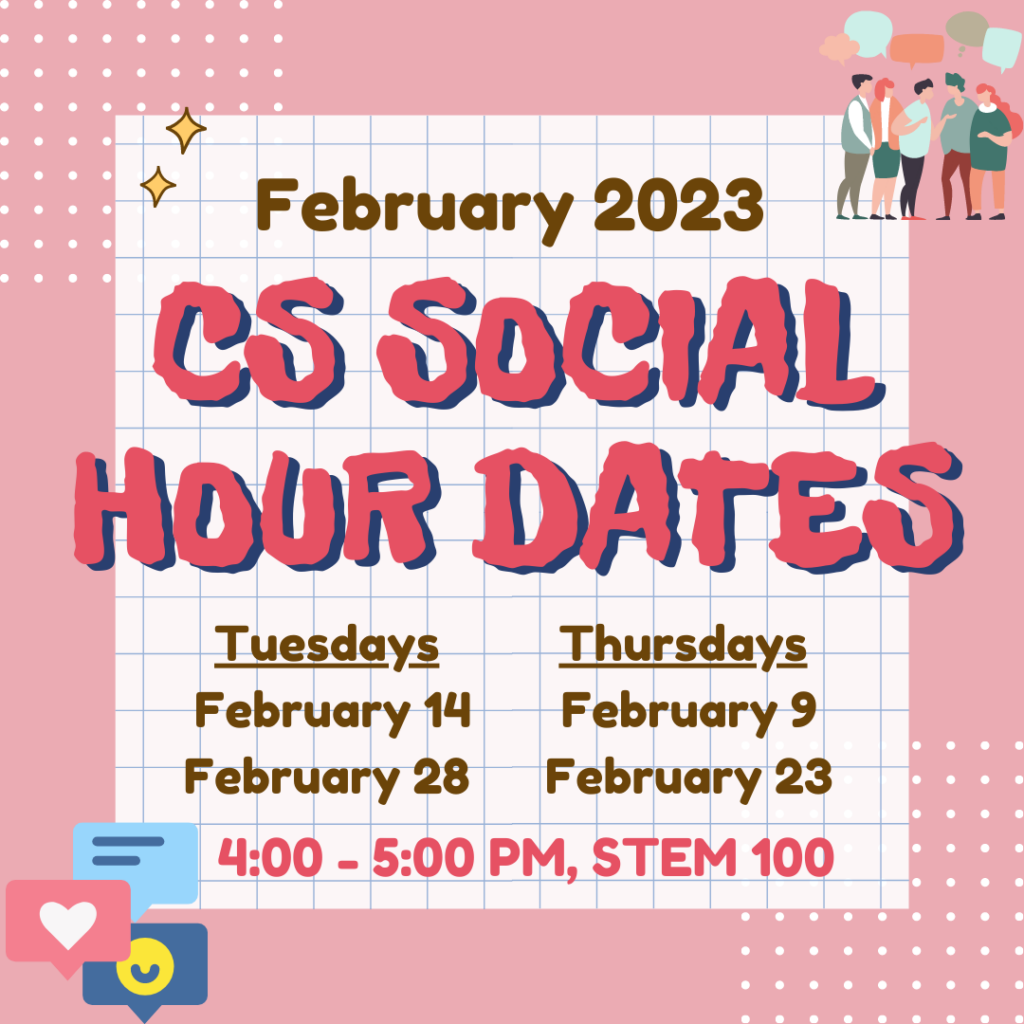Call for CS Student News
Over the course of the semester, Ms. Zsilavetz will be updating the CS Department white board (near the CS Office) with information about our students’ offers of employment, acceptances to graduate schools, accepted internship and summer REU opportunities, or publications. This is one way that the CS Department likes to celebrate our students’ achievements each spring semester. We encourage you to watch as the boards populate over the next few weeks and to email Ms. Zsilavetz (zsilave2@tcnj.edu) with any news that you would like us to share on the board.
Dr. Ferdous and CS Junior Co-author Research Publication
Congratulations to Dr. Sharif Shahnewaz Ferdous and Andrew Michael (Class of 2024) on their recent publication, titled “Use of Scaling to Improve Reach in Virtual Reality for People with Parkinson’s Disease”. The publication citation and abstract can be found below:
S. M. S. Ferdous, A. Michael, T. I. Chowdhury and J. Quarles, “Use of Scaling to Improve Reach in Virtual Reality for People with Parkinson’s Disease,” 2022 IEEE 10th International Conference on Serious Games and Applications for Health (SeGAH), Sydney, Australia, 2022, pp. 1-7, doi: 10.1109/SEGAH54908.2022.
Abstract: This research investigates the effect of scaling in virtual reality to improve the reach of users with Parkinson’s disease (PD). People with PD have limited reach, often due to impaired postural stability. We investigated how virtual reality (VR) can improve reach during and after VR exposure. Participants played a VR game where they smashed water balloons thrown at them by crossing their midsection. The distance the balloons were thrown at increased and decreased based on success or failure. Their perception of the distance and their hand were scaled in three counterbalanced conditions: under-scaled (scale = 0.83), not-scaled (scale = 1), and over-scaled (scale = 1.2), where the scale value is the ratio between the virtual reach that they perceive in the virtual environment (VE) and their actual reach. In each study condition, six data were measured −1. Real World Reach (pre-exposure), 2. Virtual Reality Baseline Reach, 3. Virtual Reality Not-Scaled Reach, 4. Under-Scaled Reach, 5. Over-Scaled Reach, and 6. Real World Reach (post-exposure). Our results show that scaling a person’s movement in virtual reality can help improve reach. Therefore, we recommend including a scaling factor in VR games for people with Parkinson’s disease.

CS Junior Presents REU Research at IFoRE 2022
Congratulations to Sara Aly (Class of 2024) who, along with her REU research partner, presented at the International Forum on Research Excellence (IFoRE) conference hosted by Sigma Xi, The Scientific Research Honor Society, in November 2022! Sara’s presentation, titled, “Accessible Hand Motion Data Acquisition Using Computer Vision”, won best presentation in the Undergraduate Math and Computer Science category, and she and her research partner were both inducted into Sigma Xi. Sara’s work was completed as part of a summer 2022 REU at Cleveland State University.




